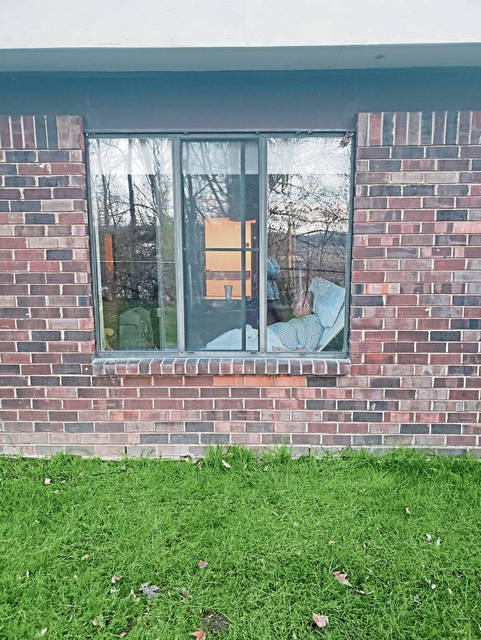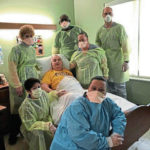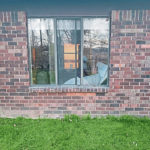Bob Schrecengost, a resident at Caring Heights in Kennedy, is one of the 759 Allegheny County residents diagnosed with covid-19. The McKees Rocks native turns 77 on Friday.
Schrecengost has dementia and chronic obstructive pulmonary disease, and has battled two recent non-covid-19 respiratory infections. Those conditions led his daughter, Lisa Smarra, to pursue alternative treatments for him.
That includes using hydroxychloroquine, a drug normally used to treat malaria and lupus but unproven in effectively treating covid-19.
“It was scary because we didn’t know what was going to happen,” Smarra said.
Schrecengost’s doctor, who wouldn’t comment for this story, was hesitant to prescribe hydroxychloroquine, Smarra said. Schrecengost had been treated with acetaminophen (sold as Tylenol) and a course of antibiotics commonly called a Z-Pak, Smarra said.
She started researching what else could be done for her dad and asked if hydroxychloroquine was an option.
The drug has been recommended by President Trump, although medical professionals have been wary about using it because of its side effects.
There isn’t enough data to support whether hydroxychloroquine is effective, and doctors at UPMC and the University of Pittsburgh on Thursday launched a program to study it along with other potential drugs.
The Centers for Disease Control and Prevention classifies the drug as among those under investigation for treating covid-19. The Food and Drug Administration has authorized doctors to prescribe it in emergencies.
But FDA scientist Denise Hinton warns in the letter providing the authorization that “the safety profile of these drugs has only been studied for FDA-approved indications, not covid-19.”
“It is remarkably unproven,” said Dr. Thomas Walsh, an infectious disease specialist who is also a member of Allegheny Health Network’s pandemic response team. “We have very, very limited data.”
The downside is potentially lethal side effects, which include heart failure, Walsh said.
“It is certainly an agent that doesn’t come without its risk,” he said.
Allegheny Health Network isn’t widely using the drug but is considering it for hospitalized patients who understand the “significant risk” associated with using it, Walsh said.
In Schrecengost’s case, his daughter mentioned the possibility of using hydroxychloroquine to her father’s nurse and then to his doctor, Smarra said.
“We were confronted with this particular decision to use this medication, knowing there could possibly be serious or fatal reactions to it,” she said.
But given her father’s medical history, “we felt we had to take drastic measures to try to help him whatever way we could,” she said.
Hydroxychloroquine can cause heart failure for some people. Smarra worried about that, but her father hasn’t had any side effects from the medicine, she said.
Schrecengost was given his first dose of hydroxychloroquine on Sunday, April 5. On Tuesday, Smarra said her father’s temperature was normal and his condition appeared to be improving.
“He is actually up and sitting in his wheelchair today, out of bed for the first day since Friday,” she said Tuesday.
Schrecengost was feeling weaker on Wednesday, Smarra said.
“There will be rough days, I’m sure,” she wrote in an email.
Smarra has been worried about her dad since March 31, when another resident at the Caring Heights Community Care and Rehabilitation Center was diagnosed with covid-19.
“The facility acts in the best interest of its residents to promote their health, safety and welfare. Due to HIPAA regulations, we cannot comment on the personal health information of our residents. We continue to work closely with the Department of Health and continue to follow all necessary guidelines,” Caring Heights administrator Lyn Manns said in a statement.
Schrecengost was fine Wednesday, April 1, when Smarra made her daily visit . The next day, Smarra got the news her father had a fever and his oxygen levels were low. He tested positive for covid-19 and his condition deteriorated, she said.
“It really just hit him like a ton of bricks,” Smarra said.
She’s thankful for the care her father has received at Caring Heights. She calls twice a day, and they keep her updated.
“I try not to bother them. They are incredibly busy,” Smarra said. “They are just amazing people, and they’re really dedicating themselves to their patients during this critical time.”
Although she visits daily and can wave at her dad through a window, they haven’t been together since March 13, Smarra said.
“It is heartbreaking,” Smarra said. “It is one of the most heartbreaking things that I think a child has to go through — to see their parent suffer and not be able to hold their hand and kiss their forehead.”













